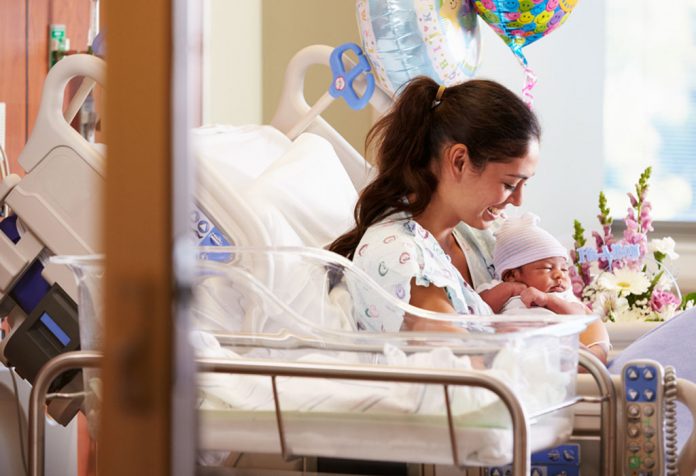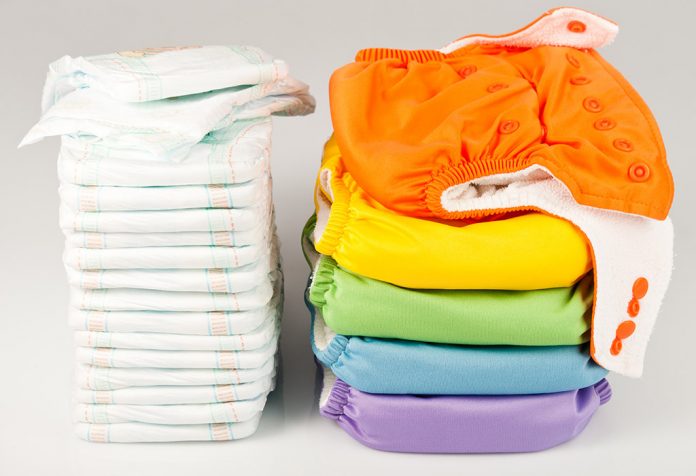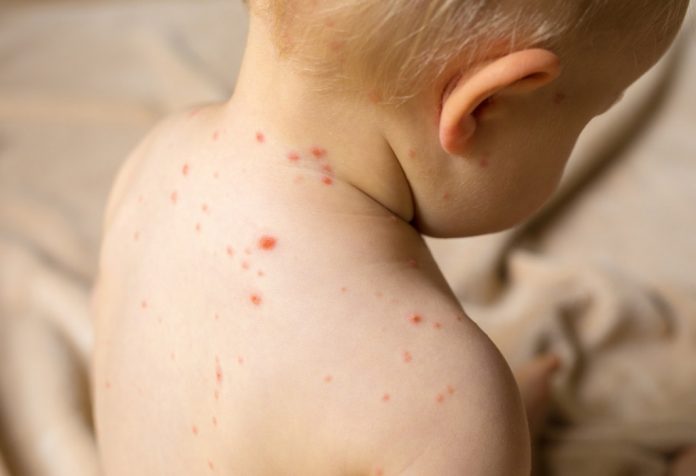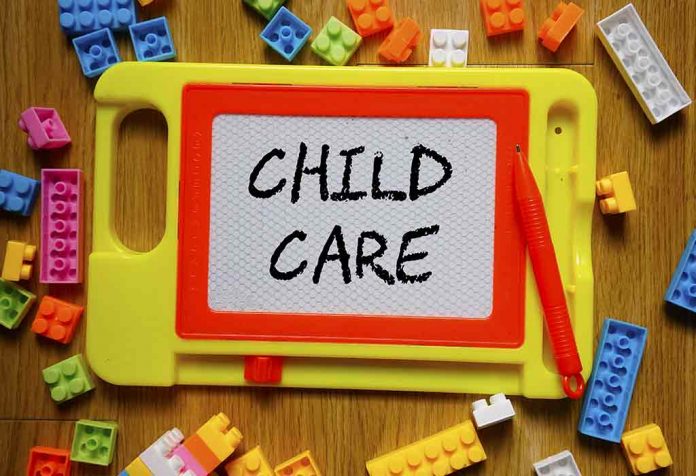

 28-Mar-2024 02:35:09 PM
28-Mar-2024 02:35:09 PM
<h3>Physical Changes</h3> <p>Here are some of the physical challenges you can expect.</p> <ul> <li> <p>Constipation</p> </li> </ul> <p>Whether you have had a normal delivery or a C-section, there is a chance of you being constipated. This may be because of the effects of iron supplements or because you are apprehensive about bowel movements when your perineum is sore.</p> <ul> <li> <p>Sore Breasts</p> </li> </ul> <p>With the delivery comes breastfeeding. Your breasts will be full of milk and you may need to nurse your baby every few hours. This could lead to sore breasts.</p> <ul> <li> <p>Hot and Cold Flashes</p> </li> </ul> <p>Dripping with sweat or burning up? You are not alone. Most mothers have hot flashes for weeks after pregnancy.</p> <ul> <li> <p>Urinary Incontinence</p> </li> </ul> <p>Childbirth weakens the pelvic muscles, thereby, causing incontinence. This is common in cases of vaginal delivery, especially the ones involving forceps or other interventions.</p> <ul> <li> <p>Weight Loss</p> </li> </ul> <p>After the baby is delivered, you may feel a little lighter, but you are likely to lose a few pounds after childbirth. If you are breastfeeding, then there is a definite chance of weight loss, as breastfeeding is known to help in getting back to your pre-pregnancy weight.</p> <p><img alt="WEIGHT LOSS" src="https://cdn.cdnparenting.com/articles/2018/02/344602235-H-300x205.jpg" style="height:1168px; width:1709px" /></p> <h3>Emotional Changes</h3> <p>While some mothers may feel happy, joyous and alert after giving birth, there are others who feel bruised, exhausted, depressed and disappointed. Here are a few common emotional changes seen in mothers.</p> <ul> <li> <p>Baby Blues</p> </li> </ul> <p>Most mothers feel weepy and irritated during the first week after giving birth. Often called “baby blues”, and experienced by many mothers, it is linked to the fluctuations in chemical and hormone levels, two to four days after birth.</p> <ul> <li> <p>Postpartum Depression</p> </li> </ul> <p>Baby blues are often considered normal. However, if you find yourself feeling persistently frightened, sad, dejected, tired for weeks or months after delivery, then you may be suffering from post-natal depression. It affects one out of every ten women, and many women tend to be withdrawn after childbirth. Seek medical intervention, as depression could affect your bond with the baby.</p> <ul> <li> <p>Irritability</p> </li> </ul> <p>With the arrival of the baby, your sleep patterns go into a tizzy. Lack of sleep could make you feel irritated, and the best way to deal with it is to sleep when you find the time and when your baby is asleep.</p> <ul> <li> <p>Anxiety</p> </li> </ul> <p>As a new mother, there may be several reasons for you to be anxious. It could be related to breastfeeding, the sleep pattern of the baby, or even apprehension about how you will deal with childcare a few months later. Try not to think too much, and allow things to settle by themselves.</p> <ul> <li> <p>Mood Swings</p> </li> </ul> <p>A new mother is sure to experience mood swings, given the exhaustion and stress related to dealing with the baby and her own health.</p> <ul> <li> <p>Guilt</p> </li> </ul> <p>The baby brings the parents closer after its arrival. However, the mother, who is usually the primary caregiver, finds herself left with no time to spend with her better half. This could cause a feeling of guilt. Try and set aside some time of the day to spend with your loved one. It could do wonders in driving those blues away.</p> <ul> <li> <p>Prolonged Periods of Sadness</p> </li> </ul> <p>The body is going through a lot of hormonal changes post-delivery, and many mothers find themselves feeling sad, frustrated, miserable and unhappy for a long time weeks after delivery. It is imperative that you seek medical intervention in such cases.</p> <h2>What Precautions Should You Take After Delivery?</h2> <p>Want to know what the necessary post-delivery precautions are? Read on, for an exhaustive list.</p> <h3>1. Use Pads and Not Tampons</h3> <p>Lochia is a process where the uterine lining is shed after delivery, and you bleed as you would during menstruation. This lasts for about six weeks, making you prone to infection. It is better to use pads in this period, as they reduce the chance of any infections.</p> <p><img alt="USE PADS" src="https://cdn.cdnparenting.com/articles/2018/02/525312328-H-300x205.jpg" style="height:1153px; width:1687px" /></p> <h3>2. Use Ice Packs for Pain Around the Vaginal Area</h3> <p>Ice packs help reduce pain around the vagina after childbirth. To avoid direct contact with the vagina, wrap the pack in a soft towel. This is a normal post-delivery precaution.</p> <h3>3. Use Warm Water to Cleanse Yourself</h3> <p>The area between your vagina and rectum can be sore and difficult to clean. Wash it gently with warm water to prevent an infection.</p> <h3>4. Take a Sitz Bath</h3> <p>A sitz bath is when you sit in a few inches of warm water every day, especially after bowel movements. This will help reduce soreness around the vagina.</p> <h3>5. Take Rest</h3> <p>Ample rest and good sleep are primary needs for a mother. A newborn needs to be fed every three hours, cleaned and comforted. It is practically impossible for you to sleep for 7-8 hours at a stretch. Change your sleep pattern. The thumb rule is “When the baby is asleep, you sleep too”. Ensure that your baby’s bed is close to yours. It saves energy and time. Do not take on any extra responsibilities apart from attending to your baby in the first few weeks. These duties could leave you exhausted. Do not try to entertain visitors who want to visit you and the baby if it becomes too tiring.</p> <h3>6. Eat Nutritive Foods</h3> <p>It is common for mothers to skip meals or forget to eat, but breastfeeding mothers must eat well and ensure that they eat when they are hungry. Eat foods rich in nutrients for optimum post-pregnancy care and benefits for the feeding baby. A healthy diet is the key to a good breastfeeding pattern to nursing your newborn. Supplement your diet with grains, vegetables, dairy, fruits, protein legumes and cereals. You food palate must be rich in protein, iron and calcium. Healthy nutrition is one of the most important precautions after delivery of the baby.</p> <h3>7. Stay Hydrated</h3> <p>Drink a lot of fluids to beat exhaustion. It is also important to drink lots of water to avoid constipation. Consume food rich in fibre and balance it by drinking lots of water.</p> <p><img alt="STAY HYDRATED" src="https://cdn.cdnparenting.com/articles/2018/02/476933734-H-300x205.jpg" style="height:1166px; width:1706px" /></p> <h3>8. Exercise Regularly</h3> <p>Find some time to exercise and establish a regime. Get outside the house at least once and try to walk and strengthen your muscles.</p> <h3>9. Ask for Help</h3> <p>Hire help to do your household chores or even look after the baby for some time, while you get some sleep to beat the exertion. Reach out to family and friends to see if they can pitch in to take care of the baby. Any additional help is invaluable.</p> <p>With the excitement and the hustle and bustle of the new arrival, you may have well forgotten the other most important person – You! Taking ample rest, getting enough sleep, and eating a nutritional diet after birth is as vital as looking after your baby. Only if you are fit can you get your little one to be fit too!</p>

Cloth Diapers Versus Disposable Diapers – Which One You Need to Choose?

Second Baby Pregnancy – Know the Signs and Symptoms

24 Months Old Baby Food – Ideas, Chart, and Recipes

Measles(Rubeola) in Children

Best Options for After-School Child Care

Impact of Television (TV) on Children – Positive & Negative Effects